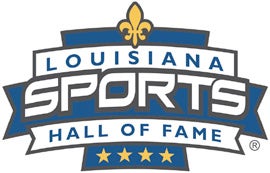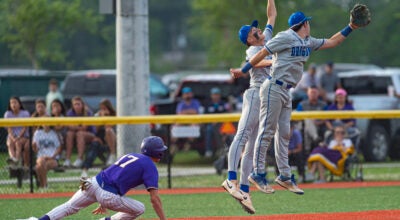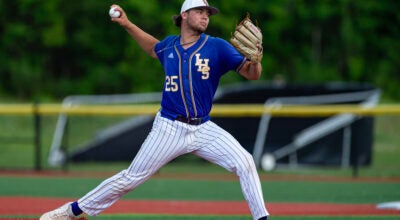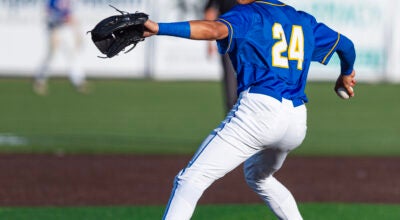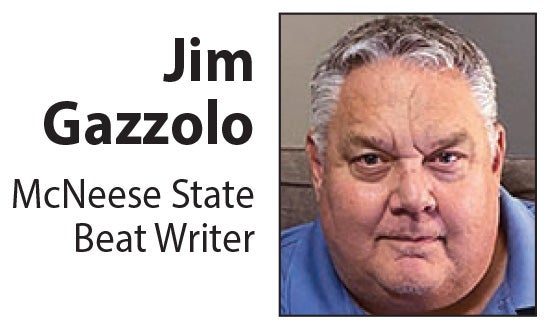Cicero goes from parking cars to filling parking lots
Published 12:00 pm Saturday, June 25, 2022
EDITOR’S NOTE: Last in a series about 10 inductees to be enshrined today in the Louisiana Sports Hall of Fame in Natchitoches.
By John James Marshall
Special to the American Press
He wanted a job in sports, so in the mid-1980s he drove to Arlington, Texas, home of the Texas Rangers. He got an interview … with the guy who ran the parking lot. He was told he could make $400 a month. “I had to pass on that,” he says today.
So that didn’t work out.
He wanted a job in sales, so he moved back home and got a job in a clothing store. Until he got a call to come in on his day off. He had to fix a flat tire just to go to the store to find out he had been laid off.
So that didn’t work out.
He was two years out of college and had no idea what he was going to do. “I did a lot of soul searching for the next couple of days,” he says now.
And then, on the advice of his father, Jay Cicero made a phone call that would change his life, and start a path that would take him to Natchitoches as he receives the Dave Dixon Louisiana Sports Leadership Award and induction into the Louisiana Sports Hall of Fame.
—
The New Orleans Times-Picayune once ran a list of the “most powerful/influential people in sports in South Louisiana.” The late Saints owner Tom Benson was on the list. Quarterback Drew Brees was on it. Former Saints head coach Sean Payton was on it. Archie Manning was on it.
Jay Cicero was on it.
It’s been a few years since that list was published and some of those names have come and gone. But there is no doubt that if the same list were created today, Cicero would still be on it.
For 25 years, he has been the president and CEO of the Greater New Orleans Sports Foundation, the organization that spearheads bringing some of the biggest events in all of sports to New Orleans.
“The relationships that Jay has developed over the years with the sports leagues and with the sports governing bodies is unique,” says Doug Thornton, executive vice president for ASM Global which manages the Superdome and other sports venues. “There aren’t many people in the country who have the long-standing relationships that Jay has. It’s a personal connection as much as it is a transactional business.”
“I have always admired what he has done,” said Taylor Moore, former owner of the Shreveport Captains, once a Double-A affiliate of the San Francisco Giants. “His success does not surprise me.”
—
Cicero’s father Frank was a longtime baseball coach at St. John’s/Jesuit High in Shreveport (now known as Loyola), having won two state championship during his 26-year coaching career, so he knew baseball people.
And Taylor Moore was a baseball person.
Moore was once head baseball coach at Centenary College, but in 1986 he was the leader of the group that owned the Captains.
On the advice of his father, Cicero called for an appointment to see Moore, with the intention of getting some tips and advice on how to get into the business of sports.
“I wore a suit so I could be impressive,” Cicero says. “Apparently, I was impressive enough for him to offer me a job the next day. A week after getting laid off, I had a job I had always wanted — working in baseball.”
“Probably the easiest hire I ever made,” Moore says. “I knew his heart was in baseball and he presented himself well. He did a magnificent job for everything he did.”
Cicero was hired as the director of group sales.
“We were really pushing for group business,” Moore says. “He did everything and developed really important relationships. He hit the ground running, no matter what the assignment was. He had the things I was always looking for — integrity and class.”
His job was more than just group nights and corporate outings. Cicero sold season tickets, outfield signs, handled promotions, pulled the tarp on the field and made sure the national anthem singer was ready to go.
And yes, he worked the parking lot.
“At the time, I didn’t think there would be any other life for me,” he says. “I was 23 years old. It was just special every night. It was fun. I was part of something that was bigger than us individually.”
After 4½ seasons Cicero left the Captains in June 1990 and moved to New Orleans. “I knew that I had reached my maximum of what I could do in Shreveport,” he says.
He got a job selling sports at WWL Radio, but also began volunteering at the Greater New Orleans Sports Foundation. Five months later, executive director Mike Millay hired him as director of special products.
He served as director of special projects and director of sales for three years, including the ’92 Olympic Trials and the ’93 Final Four, but after that, he became the first general manager of the Triple-A New Orleans Zephyrs, who had just moved to town from Denver.
After two years as GM, Cicero was at the winter baseball meetings in Dallas when he was informed that the team had been sold and that he might not have a job with the new owners.
“That’s OK,” he told the league president. “I’ve been offered a job at the Sports Foundation. I’ll call them tonight and tell them I’ll take the job. Perfect timing.”


